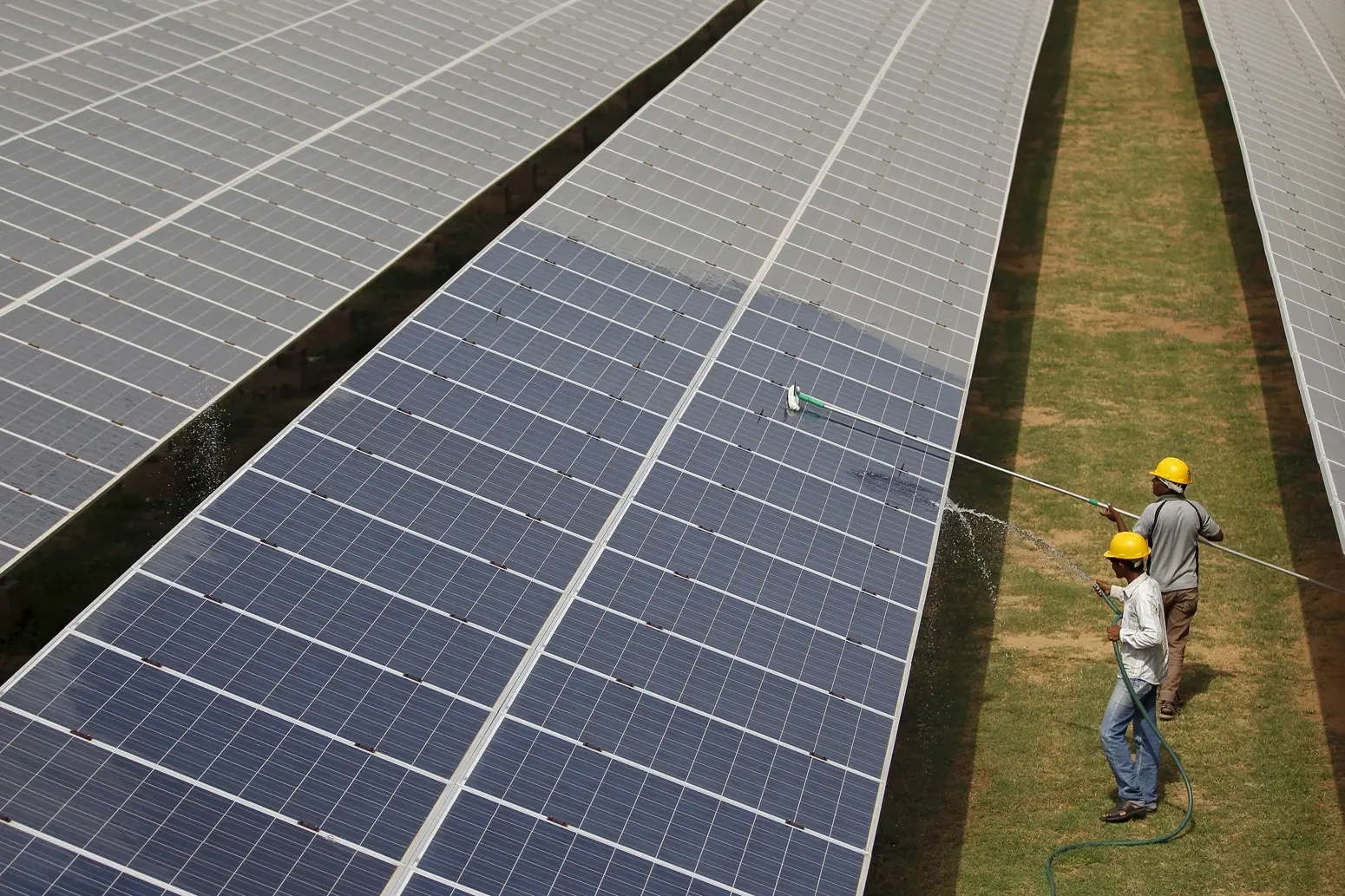Am I wrong or is this article 3 years old?
true! i updated the title
its still costing me 30k AUD to put in a decent solar and battery system, i mean prices have come down but they are still well beyond what is affordable by the avg person.
and battery system
That’s the catch. The generation isn’t the expensive part. The storage is.
That’s the thing, without the Battery it’s not cost effective, we’ll pay more for the system then it would recover. Our peak usage is at night when the sun is not there.
deleted by creator
My utility gives a 50% credit on excess generation. Thing there is the utility is still the one taking responsibility for having the capacity and scalability to respond to variation in demand and production. When I was getting quotes, adding storage would have doubled the cost of the system for a day or two worth of storage. Probably would cost double again to have a system that would keep up through the winter.
Yeah we get nothing from any excess power generation that goes back into the grid. It used to be worth it years and years ago but they stopped because it was costing the energy generators too much.
deleted by creator
wouldn’t most people’s peak usage be in the afternoon when the air conditioner is running?
Not with us, after 4pm is our peak usage sun won’t be up for much longer
I paid $5k recently without the battery - it’s not just affordable, it’s cheaper than drawing power from the grid. Pay off on the upfront investment will be about 7 years and it has an expected life of 30+ years (we paid extra for long lasting panels).
Battery prices will come down - in the mean time it’s still better to just get that power from the grid.
Must be nice
I’m curious what sized system you are putting in that costs that much.
An 8kw solar system usually costs a bit over $8k and at least in many areas seems to have a ROI of a bit over 6 years at most and often much less.
6.2kwh solar panels 14kwh battery
that battery is way too big for the energy produced by the solar array
Yet the battery could produce more savings than the solar.
Electricity prices can vary by time of day, as demand varies. Charge it at cheap-o-clock, use it at normal times, you make savings.
It can produce more savings sure in terms of electricity costs, but when including capital, solar is presently much more cost effective. In my area some 6.8kw panels have a four year ROI.
This is entirely regional though. The further you are from the equator, the more seasonal variation there is in sunlight levels, and heating/cooling loads. Around here our solar production is minimized during the season when our energy needs are maximized. We also don’t have variable rate billing, though we only get partial credit for excess generation, so battery storage will never pay for itself until something changes.
95% of what we generate during the goes to the battery and once fully charged we can go days without needing to recharge it
and then your solar panels are doing anything for you in days. you seem to have been offered a very bad deal. I suggest you find other company to analyse your case
Nope that’s literally the only way you can make solar viable here. We get no credits or anything for the excess power we generate and we use hardly any power during the day. So literally any excess power the panels generate goes to waste. And if we go to a smaller unit the money we save is negligible again
You do get paid for unused solar, it’s just less than it used to be. The idea is that you’re meant to shift your loads to the day. Even without the additional feed in, 6.6kw only costs 2.5k and pays itself off within 4 years if you’re shifting your loads to the solar peak
Also, it feels like you’ve installed an overly big battery system.
Panels and batteries are subsidised here in Victoria and the panels only costs 2500aud for a 6.6k system. Most people spend 20k on batteries or less
Sweet! Those panels I paid so dearly for are worth next to nothing!
deleted by creator
Coming from someone who owns them-
Nah, it’s not worth it… at least, if you strictly look at “saving money” overall.
ROI is on average 10-25 years, depending on your current cost of energy. The components/inverters/etc, are usually rated for 20-25 years.
At least- this applies if you have a properly licensed contractor install everything. If you do everything yourself, its extremely worth it, and would achieve ROI in a decade or less.
What part wasn’t worth it? You said it’s not worth it, then made it sound worth it.
The ROI is 10-25 years based on the electricity prices you locked in at the start.
With regular inflation, and general increases in the electricity rates, over the long run you’re going to save money. The return might not be investment market level returns, but if you can justify the up front costs it’s unlikely to not come out ahead.
If the ROI => 25 years, then it’s not worth it- because the hardware and equipment is considered deprecated at that point.
If it lasts 30 years, sure, its making good use of itself. But- everything is rated between 15-25 years. As such, after that period, it’s considered end of life, and no longer supported.
Now- I will note, it is not worth it for the “Rate I currently pay”, which is 0.08c/kwh. If next year, my electricity rates tripled, it would vastly reduce the amount of time until this solution reached ROI. And- I am betting that electricity does not get cheaper in the future, otherwise I would have not have pulled the trigger on a 50,000$ project, where the math told me it wasn’t the best idea.
Also, if you really want to see everything quantified- I plan on publishing all of the math, and numbers at the one year mark… which will be around march. -> https://static.xtremeownage.com/pages/Projects/Solar-Project/
for the “Rate I currently pay”, which is 0.08c/kwh
How did you get that rate? We pay 33 cents, and it was 24 cents just a few months ago… wouldn’t be surprised if it goes up again next year and the year after since even 33 cents is government subsidised (so - there’s no cheaper option available).
otherwise I would have not have pulled the trigger on a 50,000$ project
Ooof. Why’d you do that? We simply put (a bit over) 5kW of panels on the roof, and a good 5kW inverter. One day of sun generates about as much power as we use in a week, and even if it’s overcast we still come out ahead.
We’re basically only paying for overnight power and pretty easy to keep that to a minimum (with good insulation, efficient overnight appliances, avoiding unnecessary overnight power consumption - such as putting the beer fridge and hot water heater on a timer).
How did you get that rate? We pay 33 cents, and it was 24 cents just a few months ago… wouldn’t be surprised if it goes up again next year and the year after since even 33 cents is government subsidised (so - there’s no cheaper option available).
All about location. There are supposedly many in my area on a different coop utility, who are only paying 0.03c/kwh.
Ooof. Why’d you do that? We simply put (a bit over) 5kW of panels on the roof, and a good 5kW inverter. One day of sun generates about as much power as we use in a week, and even if it’s overcast we still come out ahead.
I had a few other goals I wanted to accomplish-
-
Reliability. The grid here isn’t the most stable, and blinks a few times per week. And, a time or two per year, we have an outage. This solution has handled this fantastically well, so well, that I don’t even notice when the grid has dropped unless I specifically go for it.
-
Apart of this, was bringing some of my wiring/electrical up to code. This accounted for 10k of the price-tag… I relocated/replaced the mains panel across the house to a location more suitable then my daughter’s closet. Also- the panel itself, was pretty old, and needed to be modernized.
One more issue- my PV is undersized a bit. Adding another 3kw, would yield much better returns for me.
Its undersized, because if I oversized it, and sent more energy than I consumed, my lovely utility slaps on a 42$ fee… which is no-bueno.
-
It’s worth noting that grid scale tends towards far better ROIs of 7 to 10 years. Home systems are a lot more expensive seeing as about half the cost of them tends to be in labor and markup as compared to the economies of scale larger projects. Still often worth it, but significantly more than a properly managed power company in a favorable regulatory environment can do.
Solar power is really cheap. If we only needed it for low wattage DC, like lights and electronics, it could be built fairly cheap even with storage. But most home energy use is high wattage AC. That gets expensive pretty quickly, unless you do your own electrical work.
From our perspective it’s been worth the investment. We did a new water heater while the electrician was wiring everything up, and that’s saved us an additional grand (at least) every year not using heating oil. Last time we talked energy prices with the neighbors they were averaging over $500 per month, but we generate enough to bank credits to last us through the winter at the hookup fees.
Granted, our winter heat is primarily the wood stove and a low consumption floor fan to circulate the air and not space heaters, but our overall ROI is below 10 years given heating and electricity costs in our area.
those parts (panels, inverter) are easy to replace since all the installation has been made, and they will be cheaper than they were when you bought them. Im my case panels + inverter were about 40% of the total cost. I imagine a similar powered panel will be way cheaper in 20 years
I’m gonna wait a few years, until prices go waaay down… and I plan on doubling/tripling the PV capacity, which will make everything much more effective, as well.
your own fault. get a nuclear reactor next time d’uh…
Don’t you hate it when you have another control by the atomic agency just because you had a little meltdown in the garden. All that because the neighbours complained that their grass became fluorescent to the cops. Silly scared people!
deleted by creator
fun fact: it’s not! like so much not, that the first planned small nuclear reactor plan in the US has been canceled
deleted by creator
Ok, but hear me out, we can make atoms go boooooom so what about that???











